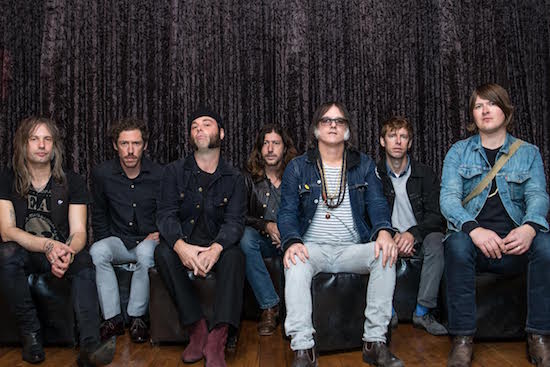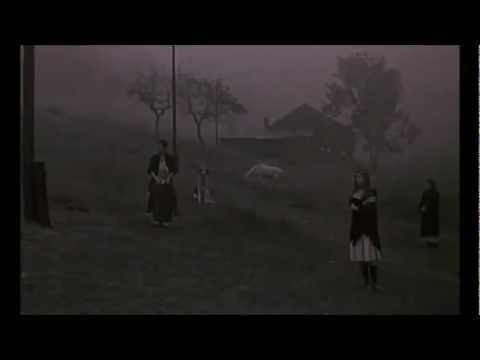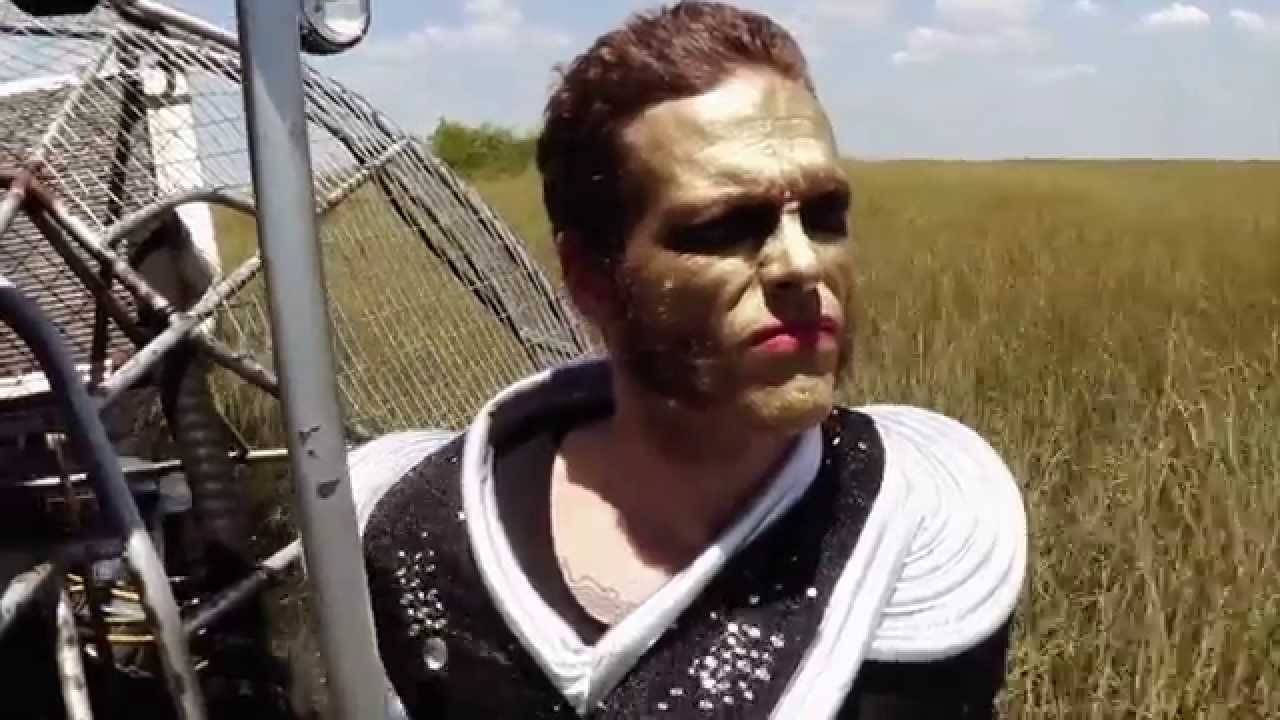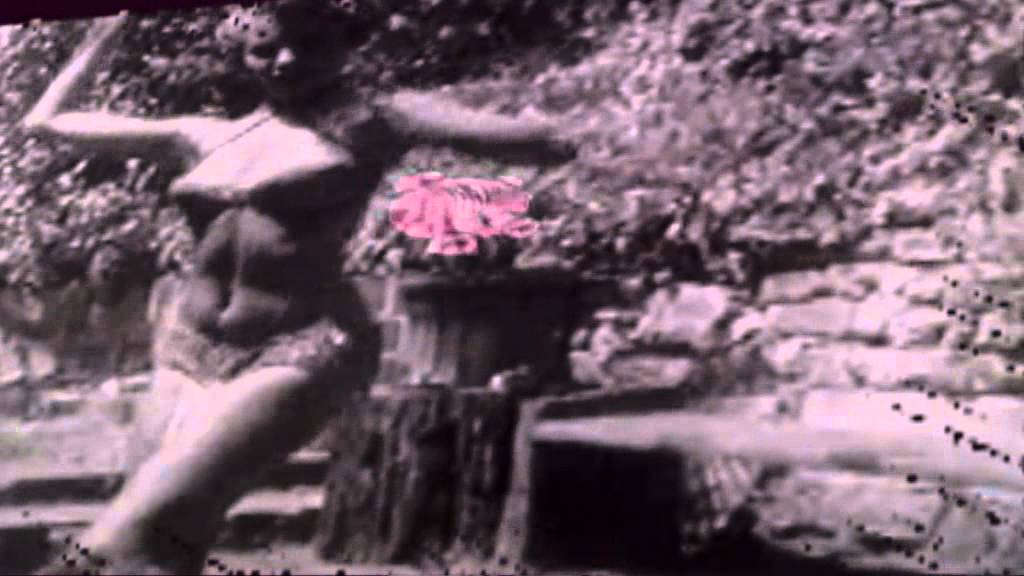Formed in San Francisco in 1990, The Brian Jonestown Massacre have gone on to become one of the most influential neo-psychedelic bands in the world. In the process they have shaken off the tag of 60s revivalists by forging ahead with an exploratory attitude that has seen them – under the constant leadership on Anton Newcombe and an ever-revolving cast of musicians – moving into a more experimental world of electronica and loops while always reaching for the outer limits.
They’ve also transcended the near-comic book perception of band of self-sacrificing clowns thanks to a prodigious work rate and a harnessing of the new media that has seen Anton Newcombe connect and communicate directly with fans. Be it demos, works in progress or the band’s back catalogue, Newcombe is the first to let you know of what’s happening.
Long sober and residing in Berlin with his family, Newcombe’s presence and influence is keenly felt among any number of the psychedelic bands based in Europe, particularly, it seems, those of a Nordic bent. Little surprise, then, to see his restless creativity being harnessed by those that he’s influenced and feeding their energy back to him.
With the band’s 15th studio album, Third World Pyramid, set for release, Anton Newcombe tells tQ of the band’s origins, collaborations and other facets that make up the modus operandi and Strange World Of The Brian Jonestown Massacre…
The Motivation
Anton Newcombe: I started this band because no one else would have me. There were no bands that existed that played the music that I wanted to hear. All of them were like, "We don’t like you." There was a very limited selection of bands when I moved to San Francisco and they were the sort of people who were influenced by Red Hot Chili Peppers. And if they were into 60s music then it was bands like The Mummies or some shit like The Morlocks where they’d play garage covers and I didn’t want anything to do with that, much as I loved those old songs. I never wanted to be defined as ‘retro’.
I liked stuff that was more rock & roll; anything that I could see was a bridge to what would become ‘alternative’. People were into Foreigner and suddenly decided they wanted to be ‘alternative’. I didn’t like Pixies or any of that shit. All of these guys used to like bands like Black Sabbath. All the guys that loved Led Zeppelin and Black Sabbath were the guys who used to chase me down the street because I was into Wire when I was 11 or 12. It was the kiss of death to have short hair then.
People don’t remember what it was like. At that time, in the UK, you were dealing with football hooliganism or the National Front, but in America you might end up with a gay hairdresser as a friend, or somebody who was only into The Cramps, or someone who was into punk rock. And you ended up hanging out with each other because it was you two against the world. Because all those rednecks would chase you down the street in cars. There was a huge level of aggression against sub-cultures.
Now we’ve got this whole other world that’s like mass hypnosis. It’s a levelling mechanism known as conservatism. But when you get down to it, psychedelic music is mind-expanding and it has nothing to do with the trendiness of bands having a wah-wah pedal and wearing their girlfriend’s frilly shirt.
I’ve got the brains, you’ve got the looks
AN: I’d have worked with many more [artists] but my reputation precedes me. However they’ve got it all wrong. If you got on a tour bus with me, the first thing you’d see is that I’m really quiet. I try to talk people into doing all kinds of stuff: “You should help me put out your record. You’re going to search high and low but you’ll never get a better deal than this because I fought the whole world to be in the position I’m in now.” And they just don’t understand. They automatically fall for all that we’re-gonna-make-you-famous shit [that labels spin].
Here’s the thing about [Swedish psych band] Les Big Byrd. Those guys used to be in bands such as The Caesars and The Teddybears and they had number one hits in Europe. So [frontman] Joakim Åhlund and his brother write all this shit for Pop Idol but they can’t get on the radio. The radio’s attitude is, “You guys are over 40 so fuck you.” Les Big Byrd said, "We want to be on your label and we’ll even pay to use your studio.” They are producers and they have access to all of these crazy recording studios where they make music that is successful all over the world and they want to come to my studio? I’m like, “Well, OK, but this isn’t a commercial studio. This is my home.” So they showed up and I said, “So what are were going to work on?” And they said, “Well, we don’t know.” I was like, “What? You don’t have any fucking ideas?” I was really confused. So they start playing stuff and I said, “OK, check this out. If you don’t play that chord here but play this note instead then I can do something else that you can’t even comprehend. Just do as I say because you guys can’t even comprehend it.”
So fast-forward and I ended up playing with them. They went on tour opening for [Brian Jonestown Massacre] and they played all of the songs exactly as I told them. I was so amazed that they let me reinvent them. They got it and they were totally devoid of ego. We get each other on a deep level and that’s cool.
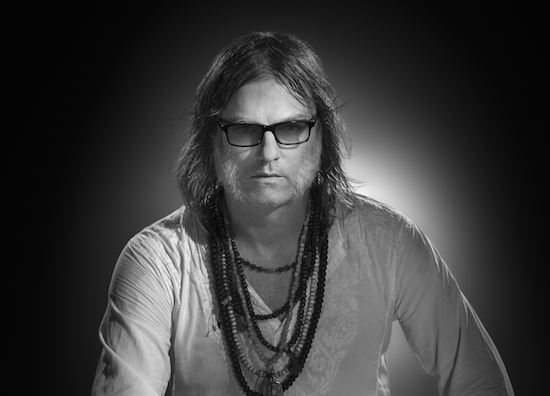
The Appeal Of The Drone
AN: The earth has a tone – it’s the key of A. All the planets are singing and when you’re using a radio telescope you can zoom in on planets because they’re all humming with their own tones. All the supernovas and suns are screaming out their own frequencies in the vast spectrum. All the atoms are humming so you just tap into it. All indigenous cultures all tap into these things; some people get it and some people don’t.
‘Malela’/’Salaam’
AN: Where is the ideal place for a novice to start with BJM? Probably on YouTube. Or start a dialogue with other people who know. Music is a personal thing but it’s also this thing where you can share it in a sub-culture with other people. You can have it either way. You could be listening to us while jogging or talking about it with other people down the pub, or putting 50p in the jukebox because you want to sing along to ‘Wonderwall’ because you’re in the mood.
It’s a weird dynamic of the full spectrum. I create a full spectrum by playing little tricks on myself like thinking about sad things and writing happy music and vice versa. Some of it is complete and some of it isn’t but I never really care. But I am interested in the juxtaposition of a sombre moment with a lot of aggression put into it. It’s pretty music but with unsavoury elements – starting with our band name!
Of Punning Song Titles And Band Names
AN: It probably comes from LSD when I’m trying to entertain myself. When you get into a certain frame of mind you don’t ever have to take psychedelics again, but if you want to be young in your mind then you’ve got to constantly entertain yourself. And I think it’s pretty funny that Paul McCartney is saying, ‘I Want To Hold Your Hand’ and I’m saying, “Oh yeah? Well, I want to hold your other hand!” It’s absolutely silly but I think that it’s funny because there are no rules and I’m not trying to have hit singles.
I’ve got this Half Man Half Biscuit approach but at the same time I’m deadly serious too.
Self-Censorship, Producers And The Art Of Quality Control
AN: I only want to please myself. I have another record coming out and it’s totally different to [Third World Pyramid which is out this week]. The one out now is us wearing our hearts on our sleeve with a nod to the 60s and a foot in the 90s, but the next one is like a nocturnal krautrock homage to PiL’s Metal Box… except it’s not; it’s a cornucopia of what happens next. It only exists because I wrote all of the songs at once. The one out this month is 45 minutes of my mind and the next one is 72 minutes of my mind.
I don’t use outside producers. With Strung Out In Heaven, I used an engineer and not a producer. He was my employee. I recorded the whole of that record by myself because everyone else was strung out on drugs. See, with an outside producer, it’s the exact opposite for me because I get the money in and money’s just another way of saying freedom. It set me on my life of freedom because I said, “I am the producer.” So that’s when the cheques starting coming to me instead of somebody else.
But for a little while I’ve been talking to Tony Visconti. Yes, I have. And it’s basically about the next time that I write a really good song, I’ll do it with him and to pass all the decision-making processes to him. In my head, I know that it’s me and him who are going to create the next ‘Cosmic Dancer’. He wants to do it. Next time that I have a song of that calibre I’ll refrain from recording it here. He’s so great and I have so much respect for the guy.
The Experiments With Loops And Electronics
AN: I started with keyboards before I started with anything. The thing was, everybody started calling me a ‘synthesizer faggot’. I never thought it was going anywhere because I was into all the cool shit. I never saw Depeche Mode getting as big as The Beatles. I never saw that they would become this 100,000-seat Rose Bowl thing. I never saw that coming. I never saw it becoming this convenience approach to music where every song goes, ‘dun-dun-dun-dun’. And that’s all that music is now.
Anglophilia
AN: Well, my last name is fucking Newcombe! We were landed gentry in the UK. We had a shield! You go to Westminster and there’s Newcombe House and all that shit. What does that mean? How Anglophile can I be? I’m an Anglo-Saxon.
Third World Pyramid by The Brian Jonestown Massacre is released on October 28 on a recordings

